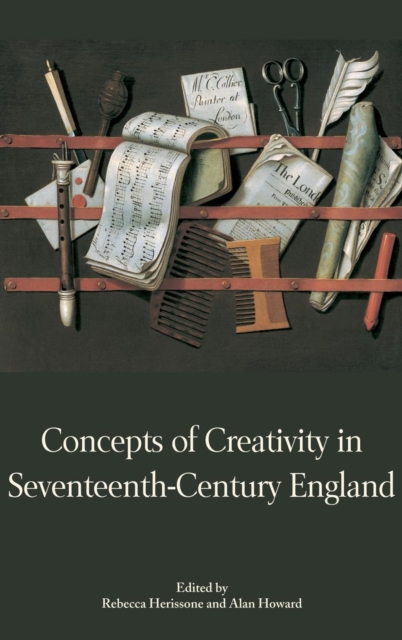
Concepts of Creativity in Seventeenth-Century England Hardback
Edited by Rebecca Herissone, Alan (Royalty Account) Howard
Hardback
Description
The first genuinely interdisciplinary study of creativity in early modern EnglandIn the seventeenth century, the concept of creativity was far removed from most of the fundamental ideas about the creative act - notions of human imagination, inspiration, originality and genius - that developed in the eighteenthand nineteenth centuries.
Instead, in this period, students learned their crafts by copying and imitating past masters and did not consciously seek to break away from tradition.
Most new material was made on the instructions of apatron and had to conform to external expectations; and basic tenets that we tend to take for granted-such as the primacy and individuality of the author-were apparently considered irrelevant in some contexts. The aim of this interdisciplinary collection of essays is to explore what it meant to create buildings and works of art, music and literature in seventeenth-century England and to investigate the processes by which such creations came into existence.
Through a series of specific case studies, the book highlights a wide range of ideas, beliefs and approaches to creativity that existed in seventeenth-century England and places them in the context of the prevailing intellectual, social and cultural trends of the period.
In so doing, it draws into focus the profound changes that were emerging in the understanding of human creativity in early modern society - transformations that would eventually lead to the development of a more recognisably modern conception of the notion of creativity.
The contributors work in and across the fields of literary studies, history, musicology, history of art and history of architecture, and their work collectively explores many of the most fundamental questions about creativity posed by the early modern English 'creative arts'. REBECCA HERISSONE is Head of Music and Senior Lecturer in Musicology at the University of Manchester. ALAN HOWARD is Lecturer in Music at the University of East Anglia and Reviews Editor for Eighteenth-Century Music. Contributors: Linda Phyllis Austern, Stephanie Carter, John Cunningham, Marina Daiman, Kirsten Gibson, Raphael Hallett, Rebecca Herissone, Anne Hultzsch, Freyja Cox Jensen, Stephen Rose, Andrew R.
Walkling, Amanda Eubanks Winkler, James A. Winn.
Information
-
Available to Order - This title is available to order, with delivery expected within 2 weeks
- Format:Hardback
- Pages:372 pages, 39 b/w, 23 line illus.
- Publisher:Boydell & Brewer Ltd
- Publication Date:21/11/2013
- Category:
- ISBN:9781843837404
Information
-
Available to Order - This title is available to order, with delivery expected within 2 weeks
- Format:Hardback
- Pages:372 pages, 39 b/w, 23 line illus.
- Publisher:Boydell & Brewer Ltd
- Publication Date:21/11/2013
- Category:
- ISBN:9781843837404






